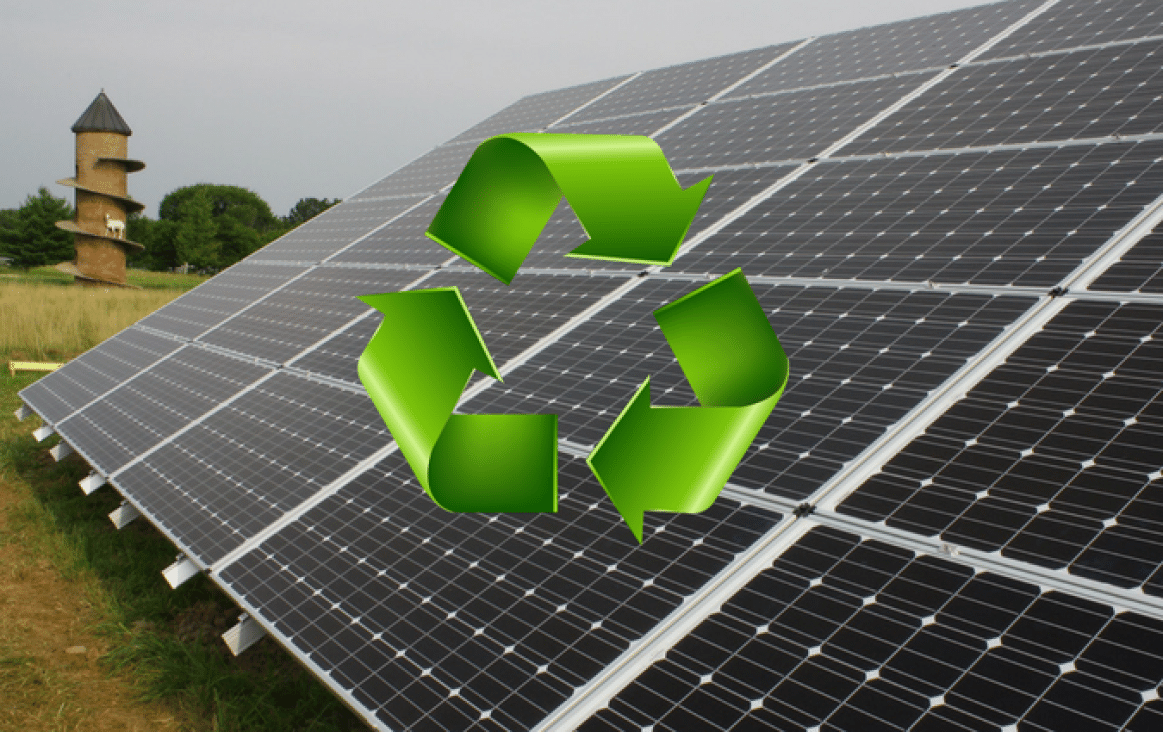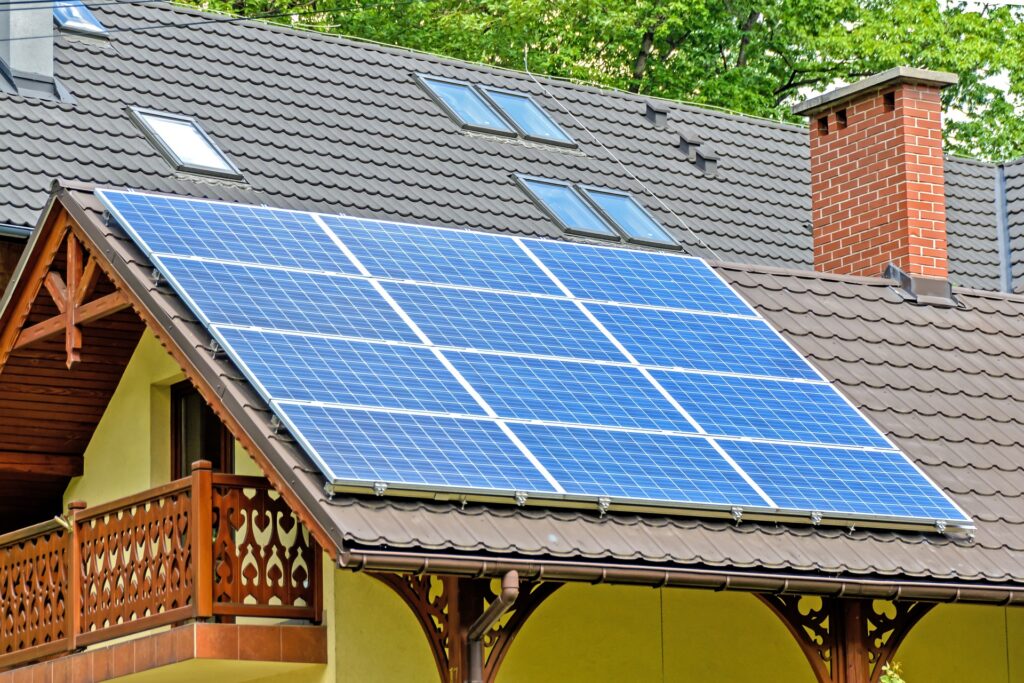Yes, solar panels can be recycled, promoting sustainability in the renewable energy industry. Portable Solar Energy Power.

Credit: www.greentechrenewables.com Solar Panel

Credit: ae-solar.com
What are Solar Panels Made of? Solar panels typically consist of several layers of materials, including:
- Photovoltaic (PV) Cells: These are the heart of the solar panel, converting sunlight into electricity. PV cells are often made of silicon, a semiconductor material.
- Glass: Protects the PV cells and provides structural support.
- Aluminum Frames: Reinforce the panel’s structure and facilitate installation.
- Various Metals and Plastics: Used in wiring, junction boxes, and other components.
The Recycling Process:
- Collection: End-of-life solar panels are collected from various sources, including decommissioned solar farms, residential installations, and manufacturing scrap.
- Sorting: Panels are sorted based on material composition to facilitate efficient recycling.
- Dismantling: Panels are disassembled to separate different components, such as glass, aluminum, and silicon cells.
- Shredding: Components are shredded into smaller pieces to prepare them for further processing.
- Material Recovery: Various techniques, such as thermal processing and chemical treatments, are used to extract valuable materials like silicon, metals, and glass.
- Refinement: Recovered materials undergo further refining to meet quality standards for reuse in manufacturing.
- Reintegration: Purified materials are reintegrated into the production of new solar panels or other products.

Benefits of Solar Panel Recycling:
- Resource Conservation: Recycling solar panels reduces the demand for virgin materials, conserving natural resources such as silicon, aluminum, and glass.
- Waste Reduction: By diverting end-of-life panels from landfills, recycling helps minimize electronic waste and associated environmental hazards.
- Energy Savings: Recycling requires less energy than producing new materials from scratch, contributing to overall energy efficiency.
- Environmental Protection: Proper disposal of solar panels prevents the release of hazardous materials into the environment, safeguarding ecosystems and human health.
- Economic Opportunities: Solar panel recycling creates new industries and job opportunities in waste management, material recovery, and green technology sectors.
Solar panel recycling is an essential component of promoting sustainability within the renewable energy industry. As solar energy becomes increasingly prevalent, ensuring that the materials used in solar panels are recycled and reused helps reduce environmental impact and conserves valuable resources.
Here are several key points about solar panel recycling and its importance:
- Resource Conservation: Solar panels contain various materials, including glass, aluminum, silicon, and other metals. Recycling these materials helps recover valuable resources that can be used to manufacture new panels or other products, reducing the need for raw material extraction.
- Waste Reduction: By recycling solar panels, we can mitigate the environmental impact of electronic waste. Since solar panels contain components that can be hazardous if not properly disposed of, recycling helps prevent these materials from ending up in landfills or being incinerated.
- Energy Savings: Recycling solar panels requires less energy than producing new ones from raw materials. This energy savings further contributes to the environmental benefits of solar energy.
- Closed-Loop Systems: Implementing closed-loop systems where materials from old solar panels are efficiently collected, processed, and reintroduced into the manufacturing process helps create a more sustainable solar industry ecosystem.
- Regulatory Incentives: Some regions have implemented regulations or incentives to encourage solar panel recycling. These measures aim to ensure that manufacturers and consumers are responsible for the end-of-life management of solar panels.
Overall, solar panel recycling plays a crucial role in promoting sustainability within the renewable energy industry, supporting the transition to a more circular economy where resources are used efficiently and waste is minimized.
In the global pursuit of sustainable energy solutions, solar power stands out as a beacon of hope, offering clean and renewable electricity generation. However, as solar panels reach the end of their lifespan, a critical question arises: what happens to these panels, and how can we ensure that their disposal doesn’t contribute to environmental harm?
Solar panels are marvels of modern engineering, comprising various materials, including silicon photovoltaic cells, glass, aluminum frames, and electronic components. While these components enable efficient energy conversion, they also contain hazardous substances such as lead, cadmium, and other heavy metals. Improper disposal of solar panels poses risks of contamination to soil, water, and air, along with potential health hazards to humans and wildlife.
However, the good news is that solar panel recycling offers a viable solution to this dilemma. By implementing advanced recycling processes, it’s possible to safely extract and recover valuable materials from end-of-life solar panels while mitigating the release of hazardous substances into the environment.
One of the primary goals of solar panel recycling is to recover and reuse key materials such as silicon, aluminum, and glass. Through sophisticated separation and purification techniques, these materials can be reclaimed and reincorporated into the manufacturing of new solar panels or other products. This closed-loop approach not only conserves precious resources but also reduces the energy and environmental footprint associated with producing new materials from scratch.
Moreover, recycling solar panels contributes to the circular economy, where materials are continually reused, thus minimizing waste generation and promoting sustainable resource management. By extending the lifecycle of solar panel components through recycling, we can significantly reduce the volume of electronic waste destined for landfills or incineration, further alleviating environmental burdens.
In addition to environmental benefits, solar panel recycling also presents economic opportunities and job creation potential. The growing demand for renewable energy technologies, coupled with regulatory incentives and corporate sustainability initiatives, has spurred the development of a robust solar panel recycling industry. From collection and processing to material recovery and reintegration, this sector offers employment prospects in waste management, green technology, and resource recovery.
However, challenges remain in scaling up solar panel recycling infrastructure and optimizing recycling processes to handle the increasing volume of end-of-life panels. Collaboration among stakeholders, including governments, manufacturers, recyclers, and consumers, is essential to address these challenges and promote sustainable practices across the solar industry supply chain.
Waste Solar Panel Be Recycled Possible to Recover Hazard.
Frequently Asked Questions On Can Solar Panel Be Recycled
Can Solar Panels Be Recycled?
Yes, solar panels can be recycled at specialized recycling centers. They are broken down and components are reused.
Conclusion
As the demand for renewable energy grows, the question of solar panel recycling becomes increasingly important. The good news is that solar panels can be recycled, reducing environmental impact and maximizing resources. By embracing sustainable practices, we can ensure a brighter future for generations to come.
Embracing solar panel recycling is a positive step towards a more sustainable and eco-friendly world.